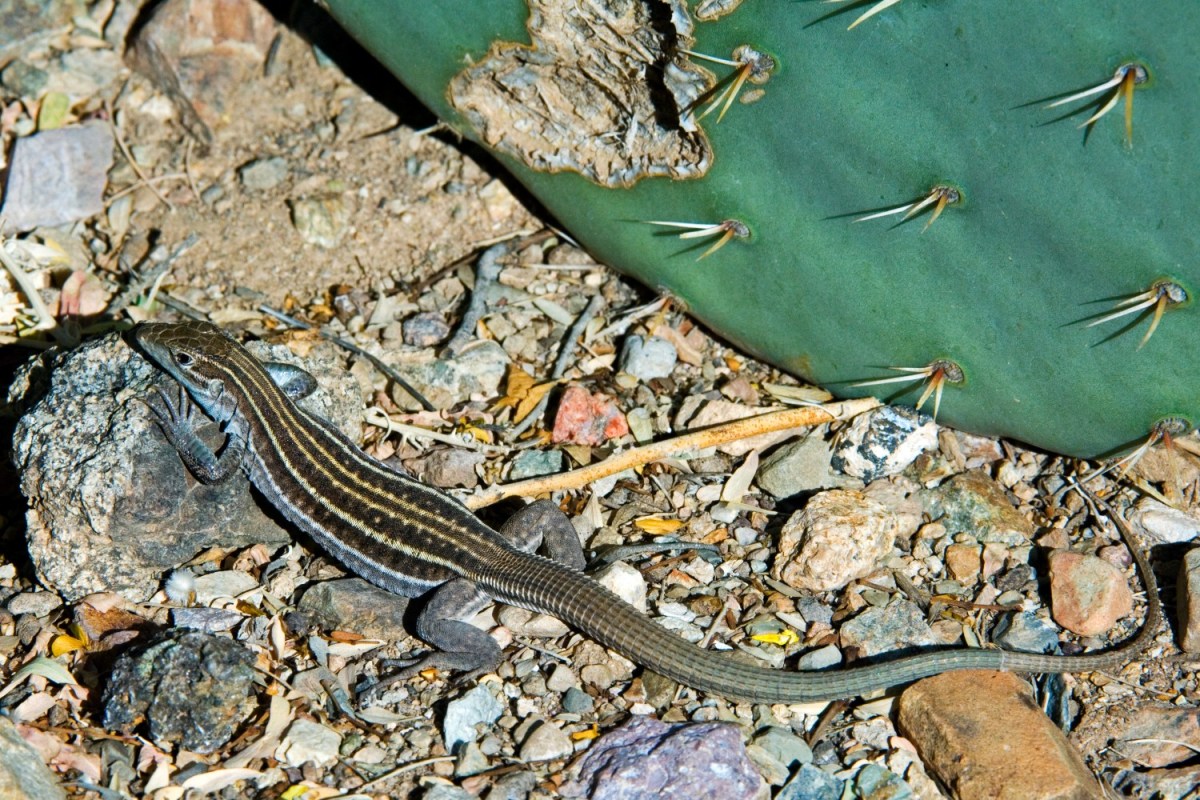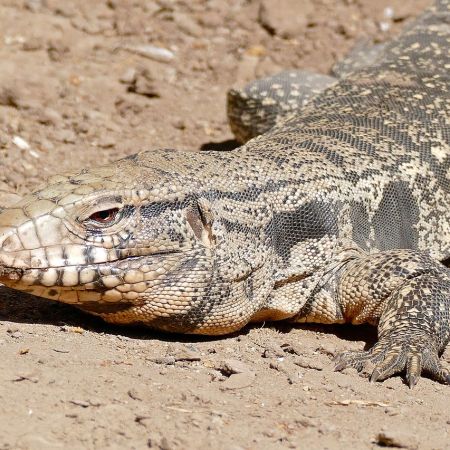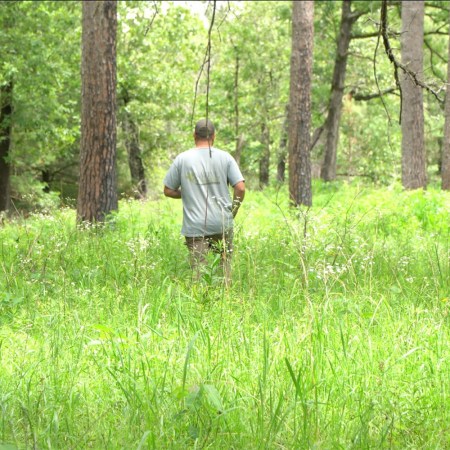This feeling is a familiar one for many people: when facing overwhelming stress, you’re suddenly faced with the impulse to consume food. As scientists can attest, there’s a biological rationale behind eating your feelings — this Cleveland Clinic article points out that the body can process stress as a need for energy. What’s one of the better ways to get energy? The answer is simple: eating.
If you’ve ever had a frustrating moment of stress eating, rest assured that you’re not alone in this. In fact, humans may not be alone in this, based on a new study of the Colorado checkered whiptail, a species of small lizard.
As Smithsonian Magazine details, the study offers evidence that a population of lizards responded to loud noises from military aircraft at Fort Carson in a familiar way: eating their (reptilian) feelings. The study, titled “Behavior, stress and metabolism of a parthenogenic lizard in response to flyover noise,” was recently published in the journal Frontiers in Amphibian and Reptile Science.
The scientists worked with the base to coordinate the timing of flights, and analyzed the blood samples from nearby checkered whiptails to see how the lizards were reacting to the sound of aircraft. “We found that whiptails at the Fort Carson show a stress response to aircraft flyovers, after we accounted for individual differences in body size and reproductive investment, in particular the number of developing eggs,” said one of the study’s authors, Layne Sermersheim, in a statement.
Drought Threatens Century-Old Colorado River Agreement
It’s a challenge for lawmakers in seven statesAs the Smithsonian article points out, the Colorado checkered whiptails are at risk due to their habitats dwindling, so the role that noise plays in the areas where they are currently living is significant. Or, as the study’s abstract puts it, “When disturbed by flyovers, these lizards spent less time moving but more time eating.” It is, shall we say, relatable.
Thanks for reading InsideHook. Sign up for our daily newsletter and be in the know.


















